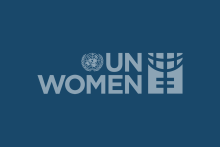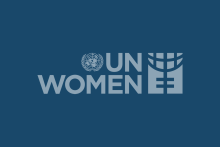Banjul/Geneva/New York — “Following the vote today by the National Assembly of The Gambia, we commend the country’s decision to uphold the ban on Female Genital Mutilation (FGM), reaffirming its commitments to human rights, gender equality, and protecting the health and well-being of girls and women.
“FGM involves cutting or removing some or all of the external female genitalia. Mostly carried out on infants and young girls, it can inflict severe immediate and long-term physical and psychological damage, including infection, later childbearing complications, and post-traumatic stress disorder.
“The Women’s (Amendment) Act, 2015—a pivotal milestone in advancing gender equality—is the culmination of years of advocacy, community engagement, and education aimed at eradicating this harmful practice and meeting the Sustainable Development Goal targets (5.3). It is, therefore, crucial that these legal protections remain in place.
“The decision to maintain the FGM ban aligns with The Gambia’s international and regional commitments to prevent harmful practices against girls and women, consistent with the Convention on the Rights of the Child (CRC), the Convention on the Elimination of All Forms of Discrimination Against Women (CEDAW), the African Charter on the Rights and Welfare of the Child, and the Maputo Protocol protecting African women’s rights.
“In addition to recognizing this critical decision by the national parliament, we commend the tireless efforts of survivors, activists, civil society organizations, and faith-based groups working to end FGM. Upholding the ban supports these grassroots initiatives, which are pivotal in ending all forms of violence, including harmful practices, against girls and women and delivering a safer and healthier future for girls and women in The Gambia and elsewhere.
“The fragility of progress to end FGM cannot be overstated. Assaults on women’s and girls’ rights in countries around the globe have meant that hard-won gains are in danger of being lost. In some countries, advancements have stalled or reversed due pushback against girls’ and women’s rights, instability, and conflict, disrupting services and prevention programmes.
“That is why legislative bans on FGM, while a crucial foundation for interventions, cannot alone end FGM. Today, more than 73 per cent of girls and women aged 15 to 49 in the country have already undergone this harmful practice, with many subjected to it before their fifth birthday.
“Recent months have emphasized the need for continued advocacy to advance gender equality, end violence against girls and women, and secure the gains made to accelerate progress to end FGM. It also underscores the importance of engaging with communities and grassroots organizations, working with traditional, political, and religious leaders, training health workers, and raising awareness effectively on the harms caused by the practice.
“Supporting survivors of FGM remains as urgent as ever. Many suffer from long-term physical and psychological harm that can result from the procedure, and need comprehensive medical and psychological care to heal from the scars inflicted by this harmful practice.
“We remain steadfast in our commitment to support the government, civil society, and communities in The Gambia in the fight against FGM. Together, we must not rest until we ensure that all girls and women can live free from violence and harmful practices and that their rights, bodily integrity, and dignity are upheld.”

